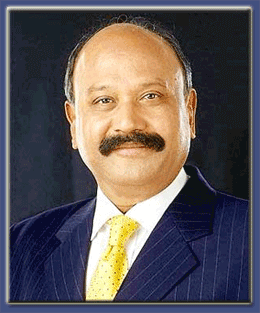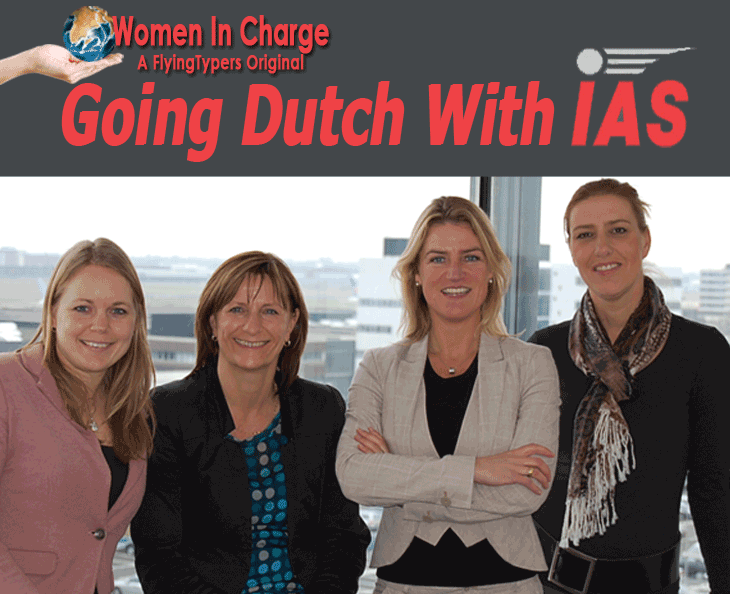| 
  randhi
Mallikarjun Rao (GMR) must be a satisfied man. As promoter of the state-of-the-art
Greenfield airport at Hyderabad, his dream of making the airport a hub
came closer to fulfillment when the airport recently signed its first
client -- Turbo Jet Engines -- for the country’s first airport-based
Free Trade Zone (FTZ) at Rajiv Gandhi International Airport (RGIA), Hyderabad.
An elated S G K Kishore, CEO, GHIAL said: “The Free Trade Zone at
the airport is envisioned to fuel the growth of a strong airport-driven
economy. It will provide a compelling value proposition to players across
the industry value chain by offering modern and integrated ecosystem that
will bring down transportation costs and reduce the turnaround time for
movement of goods. The FTZ will also provide facilities for servicing,
distribution, trading, warehousing of goods and other value additions.” randhi
Mallikarjun Rao (GMR) must be a satisfied man. As promoter of the state-of-the-art
Greenfield airport at Hyderabad, his dream of making the airport a hub
came closer to fulfillment when the airport recently signed its first
client -- Turbo Jet Engines -- for the country’s first airport-based
Free Trade Zone (FTZ) at Rajiv Gandhi International Airport (RGIA), Hyderabad.
An elated S G K Kishore, CEO, GHIAL said: “The Free Trade Zone at
the airport is envisioned to fuel the growth of a strong airport-driven
economy. It will provide a compelling value proposition to players across
the industry value chain by offering modern and integrated ecosystem that
will bring down transportation costs and reduce the turnaround time for
movement of goods. The FTZ will also provide facilities for servicing,
distribution, trading, warehousing of goods and other value additions.”
All strong pointers to boosting air cargo
growth. Top officials in the cargo division of the airport point out that
the operations of Turbo Jet Engines would comprise repair and calibration
of aircraft parts with original equipment manufacturers and airlines sending
equipment from any part of the world to the facility at the FTZ. The facility
will also derive synergies from the aircraft MRO located at the airport,
besides supporting air cargo stakeholders such as airlines and logistics
players, thus creating a multiplier effect and an integrated ecosystem.
The development is significant, considering
that it will complement air cargo growth and boost product diversification
at RGIA and dovetail with the airport’s strategy to establish facilities
to provide seamless facilitation of goods and services in line with its
vision of making RGIA the ‘Logistics Hub of India’.
For the son of a farmer from the coastal district
of Srikakulam in the state of Andhra Pradesh to move into the big leagues
as an infrastructure developer, it was indeed a huge leap. But G M Rao
and his team have been hugely successful: not only is there the Rajiv
Gandhi International Airport (RGIA) at Hyderabad but there is also the
classy -- and now well-known – Indira Gandhi International Airport
in Delhi and the Sabiha Gokcen Airport at Istanbul. The GMR Group also
has 9 highways, 2 Special Investment Regions, 9 Power Plants, 3 coal blocks
and 2 power transmission assets spread out across the country. All this
in a short span of 20-odd years after entering the infrastructure sector.
The GMR Hyderabad International Airport (GHIAL)
is a joint venture promoted by GMR Infrastructure (63 per cent), Airports
Authority of India (13 per cent), Andhra Pradesh government (13 per cent)
and Malaysian Airports Holdings Berhad (11 per cent). GHIAL has the mandate
to build, own and operate the airport for 60 years. The airport started
operations in March 2008 with an initial capacity of 150,000 tons of cargo
handling capacity per annum and 12 million passengers per annum (MPPA).
Pushing the hub concept through, the GHIAL management
has taken a leaf out of successful airport stories being played out at
Dubai or Memphis, where there was little or no industrial activity. Today,
airports at both places are not only thriving but Unlike Memphis International
Airport, GHIAL’s vision is to develop an Aerotropolis around the
airport; link the airport and area businesses offering quick efficient
access to suppliers and customers through the country and the world; attract
investments, create jobs, boost economic growth around the airport and,
of course, lastly develop the Integrated Logistic Hub.
To add muscle to the hub concept, GHIAL has done
some basic research comparing the UAE with India. While the UAE (Area:
83,600 sq km) with its GDP of $47,729 handled 16,951 MT of air cargo per
billion dollars of GDP output, India with its 3,287,263 sq km area and
a GDP of $3.694 handled only 516 MT of air cargo per billion dollars of
GDP output. In fact, India is also nowhere near Hong Kong (12,883.4 MT/bn
$ GDP) or Singapore (6,164.4 MT/bn $ GDP). There is, therefore, potential
for India to play a major role in the air cargo market. In addition, the
Hyderabad airport satisfied all the conditions required for a hub among
which were its strategic location, infrastructure, air and road connectivity,
an industrial belt around the airport, multi-modal connectivity and a
captive FTZ/SEZ.
A senior airport official commented that the
airport and its infrastructure was the best kept secret in the international
air cargo community. Indeed, RGIA has performed beyond expectations even
in these hard times with almost 70 per cent of exports coming from pharmaceutical
products. What it is looking for is participation from more carriers.
Even as a dedicated cargo team ventures into
the hinterland to source business opportunities, the airport management
on its part is in innovation mode at all times. This has seen the commissioning
of the second or alternate runway capable of taking Code-E aircraft last
year in September.
 Two months later, a dedicated upgraded cargo
apron to accommodate Code-F (A380 type) aircraft was commissioned. Pitching
itself as the “Pharma Hub” of the country, the dedicated cargo
apron was essential to accommodate widebody planes. The move was aimed
to boost and sustain the integrity of end-to-end cold chain from shippers’
premises to consignees. It was in the innovative mode that the apron was
constructed after consultations with customers. Through its unique “VoC”
(Voice of Customer) customer feedback initiative, it was decided to set
up Code-F aircraft parking stands in close proximity to the terminal since
that would ensure the cold chain integrity. These initiatives have enabled
RGIA to provide world-class facilities.
Two months later, a dedicated upgraded cargo
apron to accommodate Code-F (A380 type) aircraft was commissioned. Pitching
itself as the “Pharma Hub” of the country, the dedicated cargo
apron was essential to accommodate widebody planes. The move was aimed
to boost and sustain the integrity of end-to-end cold chain from shippers’
premises to consignees. It was in the innovative mode that the apron was
constructed after consultations with customers. Through its unique “VoC”
(Voice of Customer) customer feedback initiative, it was decided to set
up Code-F aircraft parking stands in close proximity to the terminal since
that would ensure the cold chain integrity. These initiatives have enabled
RGIA to provide world-class facilities.
Said Carsten Hernig, Regional Director, South
Asia & Middle East, Lufthansa Cargo, which flies in freighters to
transport pharma products, “An excellent infrastructure is essential
especially to transport temperature-sensitive goods.” The carrier
was delighted with the facilities provided by Hyderabad airport, “which
meets precisely all the necessary requirements. This,” said Hernig,
“is another important step in the successful Pharma hub cooperation
between Hyderabad Airport and Lufthansa Cargo.”
Tirthankar Ghosh
|








